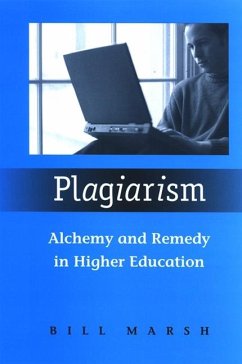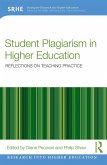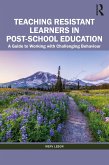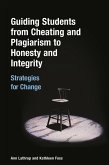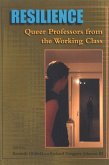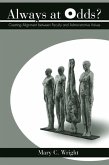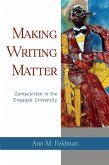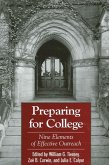Plagiarism takes an in-depth look at the history of plagiarism in higher education in light of today's Web-based plagiarism detection services. Challenging the widespread assumption that plagiarism is a simple matter of student cheating or scriptural error, Bill Marsh argues that today's teachers and educational institutions may be cheating themselves and their students in pursuing quick-fix solutions to the so-called epidemic of student plagiarism.
When students submit papers cribbed from materials found on the Web or purchase research papers from Internet paper mills, these acts of sedition must also be recognized, for better or worse, as examples of new-media composition techniques. Examining Web-based plagiarism detection services and software such as Glatt, EVE, Plagiarism-Finder, and Turnitin.com, Marsh contends that these services regulate writing and reading practices in ways consistent with precomputer, even preindustrial, efforts to manage and refine human behavior. As he weaves together print history, education, rhetoric, and communication theory, Marsh shows that the rules governing plagiarism and the proper use of borrowed materials have their origins in early intellectual property law, in the reading practices of twelfth-century monks, and the precepts of medieval alchemy. Through an examination of these prescholastic models, this book calls for a revised approach to academic writing in computer-mediated environments.
When students submit papers cribbed from materials found on the Web or purchase research papers from Internet paper mills, these acts of sedition must also be recognized, for better or worse, as examples of new-media composition techniques. Examining Web-based plagiarism detection services and software such as Glatt, EVE, Plagiarism-Finder, and Turnitin.com, Marsh contends that these services regulate writing and reading practices in ways consistent with precomputer, even preindustrial, efforts to manage and refine human behavior. As he weaves together print history, education, rhetoric, and communication theory, Marsh shows that the rules governing plagiarism and the proper use of borrowed materials have their origins in early intellectual property law, in the reading practices of twelfth-century monks, and the precepts of medieval alchemy. Through an examination of these prescholastic models, this book calls for a revised approach to academic writing in computer-mediated environments.
Dieser Download kann aus rechtlichen Gründen nur mit Rechnungsadresse in A, D ausgeliefert werden.

